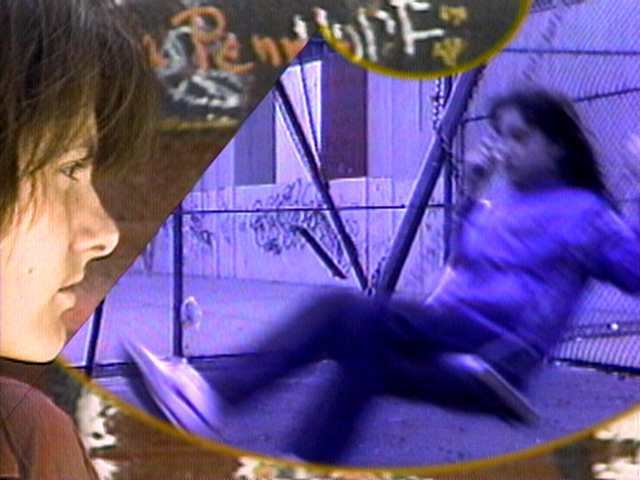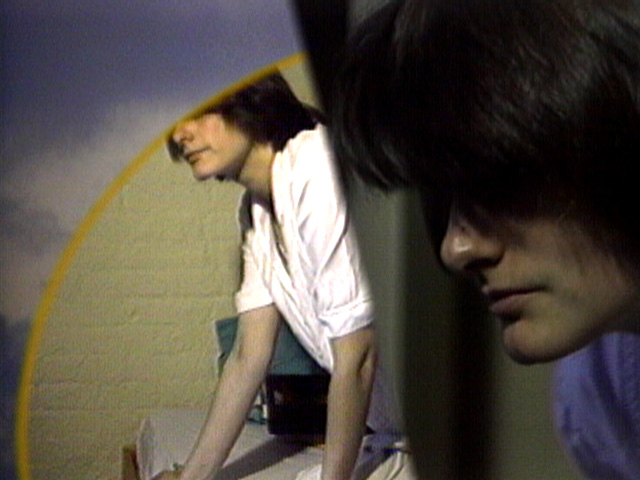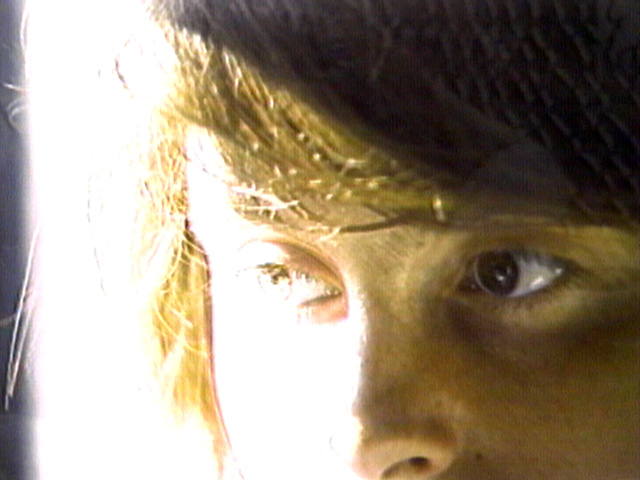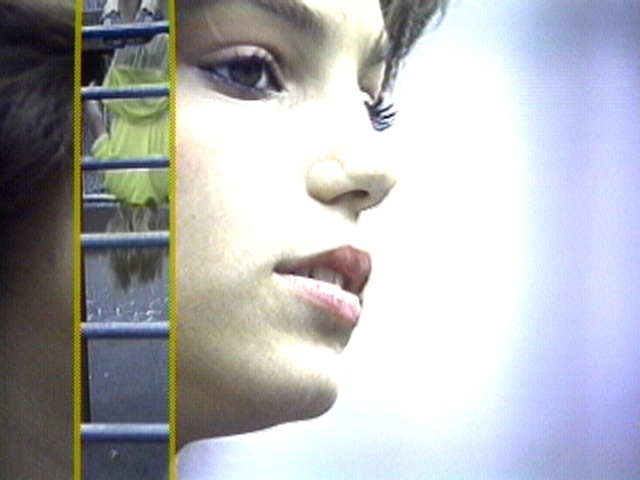Description
Evocation is the prologue of the three-part series Damnation of Faust, in which Birnbaum transforms the Faustian myth into a dreamlike introspection on the duality of the internalized self and the external world. A playground scene, shot in the streets of lower Manhattan, is the work's literal evocation. An underlying tension is derived from a longing for innocence and renewal, a desire to transcend everyday experience, which is evoked through the awakening of a young woman's lost childhood. Birnbaum brings her architectural background to the piece, using 19th-century Japanese ukiyo-e forms, fans and vertical pillars as visual motifs that plunge the viewer into the picture frame; scenes unfold and glimpses of meaning are revealed like a fan being opened. As much as the fan reveals, it also conceals — a key to the tape's very duality. Birnbaum uses video technology as an expressive pictorial language; multiple frames and images articulate the conjoinment of inner psychological space and external space, past and present, memory and reality. The three-part original score — dub music, haunting incantations and jubilant synth-pop — mirrors the protagonist's trajectory from confinement to transcendence.
Producer/Director: Dara Birnbaum. Camera: Dara Birnbaum. Post-Production Director: John Zieman. Editors: Richard Feist, John Zieman. Music: Joshua Fried, Sonic Youth © Neutral Records [p] LGW Music, 1982, John Zieman. Key Production Assistant: Kit Alderdice. Production Assistant: Jim Czarnecki. Talent: Kit Alderdice, Michelle Denisco, Alice Denobregga, Jerry Dinatolli, Georgeann Ditelli, Kim Galiardo, Pam Hysinger, Michael Libonati, Ronald Lonergan, Oggi Ochoa, Dino Polichelli, Jenny Porter, Amanda Stark, Timmy Stark, Millard Thomas, Gertrude Vaughn, Gina Vesce. Thanks: All Mobile Video, Inc., Electronic Arts Intermix, The Kitchen Center, Matrix Video, 185 Nassau Street Corporation. Made in part with a grant from the New York State Council on the Arts.



